前言
现在的JAVA行业,貌似已经是SpringBoot + SpringCloud 的天下了,早期的SSH,SSM框架已经老去,与SpringBoot相结合的JPA框架虽然省去了很多的增删改查sql,但是比较笨拙,在面对一些复杂多变的逻辑时常常力不从心,而相对应的Mybatis由于其高度的灵活性受到广大JAVA攻城狮的欢迎。之前整合过了springboot+mybatis,前几天看到一个面试的问一个问题,Mybatis的一级缓存,二级缓存。我想这个应该也是一个重点吧,所以今天决定来详细解读一下神秘的一二级缓存。
- 一级缓存是SqlSession级别的缓存。在操作数据库时需要构造sqlSession对象,在对象中有一个数据结构(HashMap)用于存储缓存数据。不同的sqlSession之间的缓存数据区域(HashMap)是互相不影响的。 一级缓存是默认开启的不用配置。
- 二级缓存是mapper级别的缓存,多个SqlSession去操作同一个Mapper的sql语句,多个SqlSession可以共用二级缓存,二级缓存是跨SqlSession的。二级缓存的开启(实体类必须序列化),然后在配置文件里面配置。
MyBatis-plus 配置要点
核心要点1
mybatis-plus 在springboot 中的核心配置如下
mybatis-plus.configuration.cache-enabled=true mybatis-plus.mapper-locations=classpath*:/mapper/*.xml mybatis-plus.type-aliases-package=com.sch.app.mybatis.entity logging.level.com.sch.app.mybatis.mapper= debug
所需依赖 除了基本的springboot依赖外,还有
核心要点2
<dependency> <groupId>com.baomidou</groupId> <artifactId>mybatis-plus-boot-starter</artifactId> <version>3.3.2</version> </dependency> <dependency> <groupId>org.springframework.boot</groupId> <artifactId>spring-boot-starter-cache</artifactId> </dependency> <dependency> <groupId>org.projectlombok</groupId> <artifactId>lombok</artifactId> </dependency>
核心要点3
mybatis 语句生成 generatorConfig.xml 用它一步生成需要的基本实体类和接口以及mapper文件(resouses目录下)
<?xml version="1.0" encoding="UTF-8"?>
<!DOCTYPE generatorConfiguration PUBLIC "-//mybatis.org//DTD MyBatis Generator Configuration 1.0//EN" "http://mybatis.org/dtd/mybatis-generator-config_1_0.dtd">
<generatorConfiguration>
<!-- <properties resource="mybatis.properties" />
-->
<classPathEntry location="D:\AJava\mysql-connector-java-8.0.16.jar" />
<context id="msqlTables" targetRuntime="MyBatis3">
<plugin type="org.mybatis.generator.plugins.SerializablePlugin"></plugin>
<jdbcConnection connectionURL="jdbc:mysql://localhost:3306/alexshi?serverTimezone=GMT%2B8"
driverClass="com.mysql.cj.jdbc.Driver" password="1234" userId="root" >
<property name="nullCatalogMeansCurrent" value="true"/>
</jdbcConnection>
<javaTypeResolver>
<property name="forceBigDecimals" value="false" />
</javaTypeResolver>
<javaModelGenerator targetPackage="com.sch.app.mybatis.entity" targetProject="SpringbootMybatis\src\main\java">
<property name="enableSubPackages" value="true"/>
<!-- 从数据库返回的值被清理前后的空格 -->
<property name="trimStrings" value="true" />
</javaModelGenerator>
<sqlMapGenerator targetPackage="mapper" targetProject="SpringbootMybatis\src\main\resources">
<property name="enableSubPackages" value="true"/>
</sqlMapGenerator>
<javaClientGenerator type="XMLMAPPER" targetPackage="com.sch.app.mybatis.mapper" targetProject="SpringbootMybatis\src\main\java">
<property name="enableSubPackages" value="true"/>
</javaClientGenerator>
<!--数据库表-->
<table schema="" tableName="d_dictionary"></table>
<table schema="" tableName="d_dictionary_type"></table>
<table schema="" tableName="c_resource"></table>
<table schema="" tableName="c_role"></table>
<table schema="" tableName="c_role_resource"></table>
<table schema="" tableName="c_user_online"></table>
<table schema="" tableName="c_user"></table>
<table schema="" tableName="c_user_role"></table>
<table schema="" tableName="test"></table>
</context>
</generatorConfiguration>

这个 Run Mybatis Generator 可以在eclipse 的插件市场下的
点击执行后生成以下内容
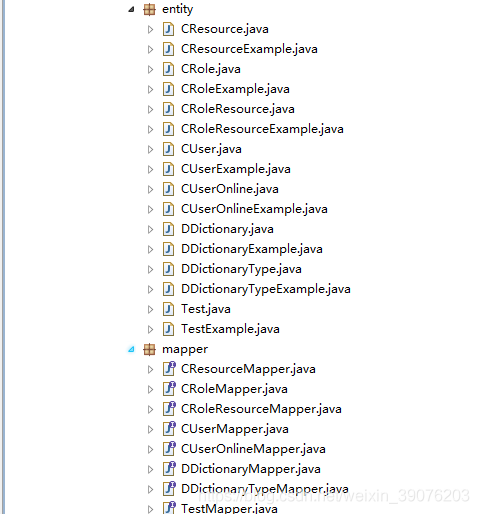
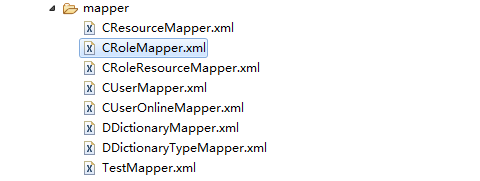
Mybatis-plus 一级缓存的测试
首先一定要开启日志 方便查看效果
logging.level.com.sch.app.mybatis.mapper= debug
com.sch.app.mybatis.mapper 也就是 mapper接口的目录
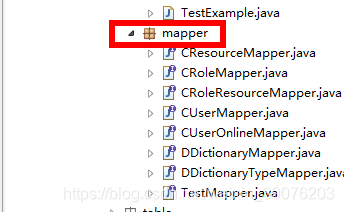
测试代码1
@Autowired
private SqlSessionFactory sqlSessionFactory;
@RequestMapping(value = "/testMybatis")
@ResponseBody
public void testMybatis(){
SqlSession sqlSession = sqlSessionFactory.openSession();
TestMapper testMapper = sqlSession.getMapper(TestMapper.class);
for (int i = 0; i < 3; i++) {
Test selectByPrimaryKey = testMapper.selectByPrimaryKey(5);
log.info("结果:"+ selectByPrimaryKey.getUsername());
}
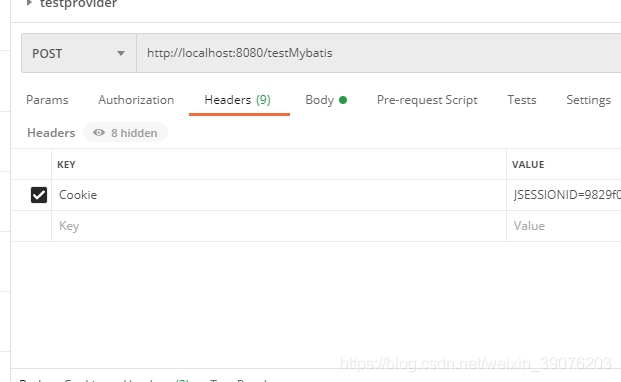
结果是

可以看出,只搜索了一次,第二三次都没有sql打印
测试代码2
@RequestMapping(value = "/testMybatis")
@ResponseBody
public void testMybatis(){
SqlSession sqlSession = sqlSessionFactory.openSession();
TestMapper testMapper = sqlSession.getMapper(TestMapper.class);
for (int i = 0; i < 3; i++) {
Test selectByPrimaryKey = testMapper.selectByPrimaryKey(5);
log.info("结果:"+ selectByPrimaryKey.getUsername());
if (i == 2) {
selectByPrimaryKey.setUsername("刘惜君的妹妹");
testMapper.updateByPrimaryKey(selectByPrimaryKey);
Test selectByPrimaryKey2 = testMapper.selectByPrimaryKey(5);
log.info("更新后的用户名:"+ selectByPrimaryKey2.getUsername());
}
}
打印结果:

可见,第一次我加入了更新的代码后再次查询的时候,就又执行了sql语句,说明当执行插入、更新、删除,会清空SqlSession中的一级缓存。只有查询的操作,一级缓存才不会被清除。
Mybatis-plus二级缓存测试
二级缓存的开启除了在配置文件中打开开关 还要在mapper对应开启
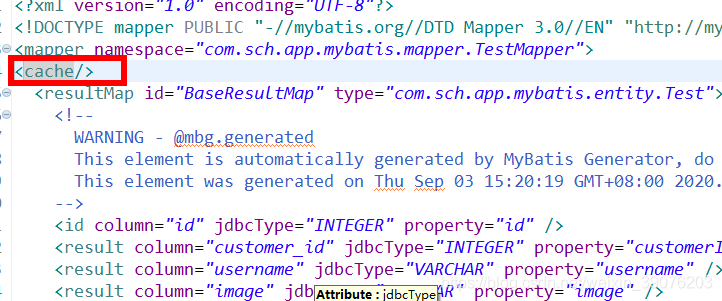
测试代码1
@RequestMapping(value = "/testMybatis2")
@ResponseBody
public void testMybatis2(){
SqlSession openSession1 = sqlSessionFactory.openSession();
SqlSession openSession2 = sqlSessionFactory.openSession();
TestMapper mapper1 = openSession1.getMapper(TestMapper.class);
TestMapper mapper2 = openSession2.getMapper(TestMapper.class);
Test selectByPrimaryKey = mapper1.selectByPrimaryKey(5);
System.out.println(selectByPrimaryKey.getUsername());
openSession1.close();
Test selectByPrimaryKey2 = mapper2.selectByPrimaryKey(5);
System.out.println(selectByPrimaryKey2.getUsername());
openSession2.close();
}
测试结果

由测试结果可知,上述代码第一次查 mapper1.selectByPrimaryKey(5) 的时候执行了sql,然后关闭了第一个session 第二次 用别的sqlseeison 去查没有调用sql,说明了二级换粗和sqlseesion 无关,之和mapper有关。
测试代码2
@RequestMapping(value = "/testMybatis3")
@ResponseBody
public void testMybatis3(){
SqlSession openSession1 = sqlSessionFactory.openSession();
SqlSession openSession2 = sqlSessionFactory.openSession();
SqlSession openSession3 = sqlSessionFactory.openSession();
TestMapper mapper1 = openSession1.getMapper(TestMapper.class);
TestMapper mapper2 = openSession2.getMapper(TestMapper.class);
TestMapper mapper3 = openSession3.getMapper(TestMapper.class);
Test selectByPrimaryKey = mapper1.selectByPrimaryKey(5);
System.out.println(selectByPrimaryKey.getUsername());
openSession1.close();
selectByPrimaryKey.setUsername("刘惜君的姐姐");
mapper2.updateByPrimaryKey(selectByPrimaryKey);
openSession2.commit();
Test selectByPrimaryKey3 = mapper3.selectByPrimaryKey(5);
System.out.println(selectByPrimaryKey3.getUsername());
openSession3.close();
}
打印结果

由此可知,做了更新mapper2.updateByPrimaryKey(selectByPrimaryKey); 之后, 二级缓存才被清空。特性和一级缓存很类似。
初次之外,我们可以通过userCache是来设置具体的语句是否禁用二级缓存

重新执行 http://localhost:8080/testMybatis2 后的打印结果

可见 selectByPrimaryKey 这个查询禁止二级缓存后,两次都从数据库里面查了。
小结
- 一级缓存是默认开始的,属于会话级别,一个会话做多次做相同查询会开启,如果对查询的数据进行更新,删除等操作时,再次查询会从数据库里查而不用一级缓存。
- 二级缓存开启最重要,请记住三点,1.配置文件开启mybatis-plus.configuration.cache-enabled=true,2.对应mapper文件开启 3.对应实体类实现Serializable 接口。如果要对某一个sql语句禁用二级缓存,则需要在具体的xml 的sql语句定义处加上 useCache=“false” 。另外记住它和会话无关,和 xml 的 namespace 即具体的mapper 有关。
- 在mapper的同一个namespace中,如果有其它insert、update、delete操作数据后需要刷新缓存,如果不执行刷新缓存会出现脏读。
- 设置statement配置中的flushCache=“true” 属性,可以实现二级缓存的刷新,false则可能出现脏读。openSession.clearCache() 可以实现对一级缓存的刷新。
到此这篇关于SpringBoot + Mybatis-plus实战之Mybatis-plus的一级缓存、二级缓存的文章就介绍到这了,更多相关Mybatis-plus一级缓存、二级缓存内容请搜索自学编程网以前的文章或继续浏览下面的相关文章希望大家以后多多支持自学编程网!
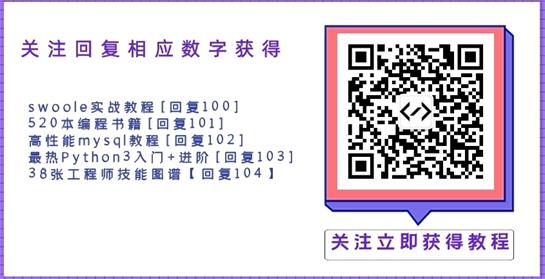
- 本文固定链接: https://zxbcw.cn/post/201121/
- 转载请注明:必须在正文中标注并保留原文链接
- QQ群: PHP高手阵营官方总群(344148542)
- QQ群: Yii2.0开发(304864863)
